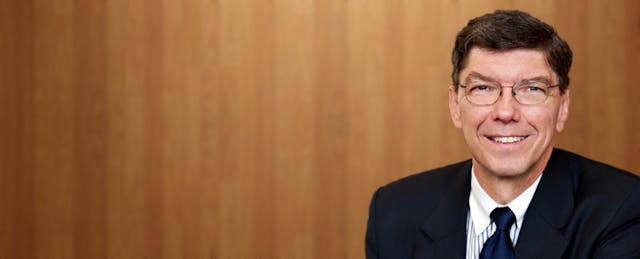The nonprofit Innosight Institute celebrated its fifth anniversary late last week with a star-studded bash held at the Mountain View based Computer Museum. Headlining the evening was a panel that included Harvard Business School luminary, Clayton Christensen, teacher-of-the-world Sal Khan, and Scott Cook, founder of Intuit.
The Institute had news, too: it is rechristening itself the "Clayton Christensen Institute for Disruptive Innovation." Christensen offered this charming quip at the end of the evening: "I feel so sorry for anyone who isn't Clayton Christensen" presumably because of all the interesting experiences and smart folks he knows.
All the panelists were chock full of thoughtful points. For instance, Christensen noted that "If you don't frame the problem correctly the probability of getting an answer is small." Khan talked about how he originally thought YouTube was just for sharing cat pictures. When he began sharing videos with his cousins on how to solve their math problems, however, Khan discovered the technology was "just good enough" to let him try sharing his "lessons" with teens.
"I'm not as hard on American education as the press has it," Khan said. "No country has as large and diverse population," he noted. Comparing the US to Finland or other such countries "is not a fair comparison," he said. "It's not about what's wrong with the American systems but how can we make the rest-of-the-world more American."
"The future I'd like to see: one where students are achieving competency-based learning," where students go to class not just because they have to but because they want to achieve mastery," Khan added. (He also noted that "next year" there will be Khan Academy translated into every major language.")
Disruption is hard work, Christensen pointed out. "The leaders of corporate [giants] didn't stumble because they weren't smart," he said. Broken frameworks lead us astray: when "...what we think is right is wrong or because what we think is wrong is instead right." Particularly in a world built around achievement, people tend to do those things that help them achieve--even when they realize the toll it takes on their personal relationships.
Christensen urged those attending the dinner to keep their eye focused on the big issues, including how to build constructive supportive relationships with the people in their life.


